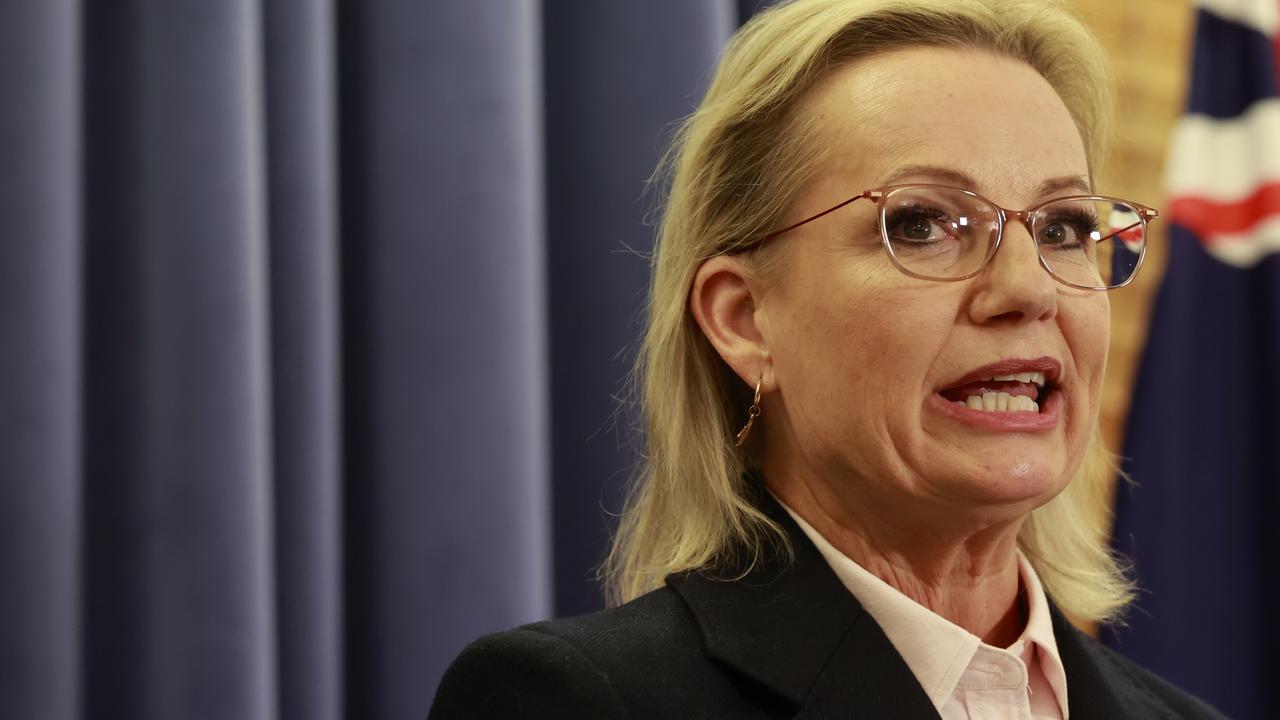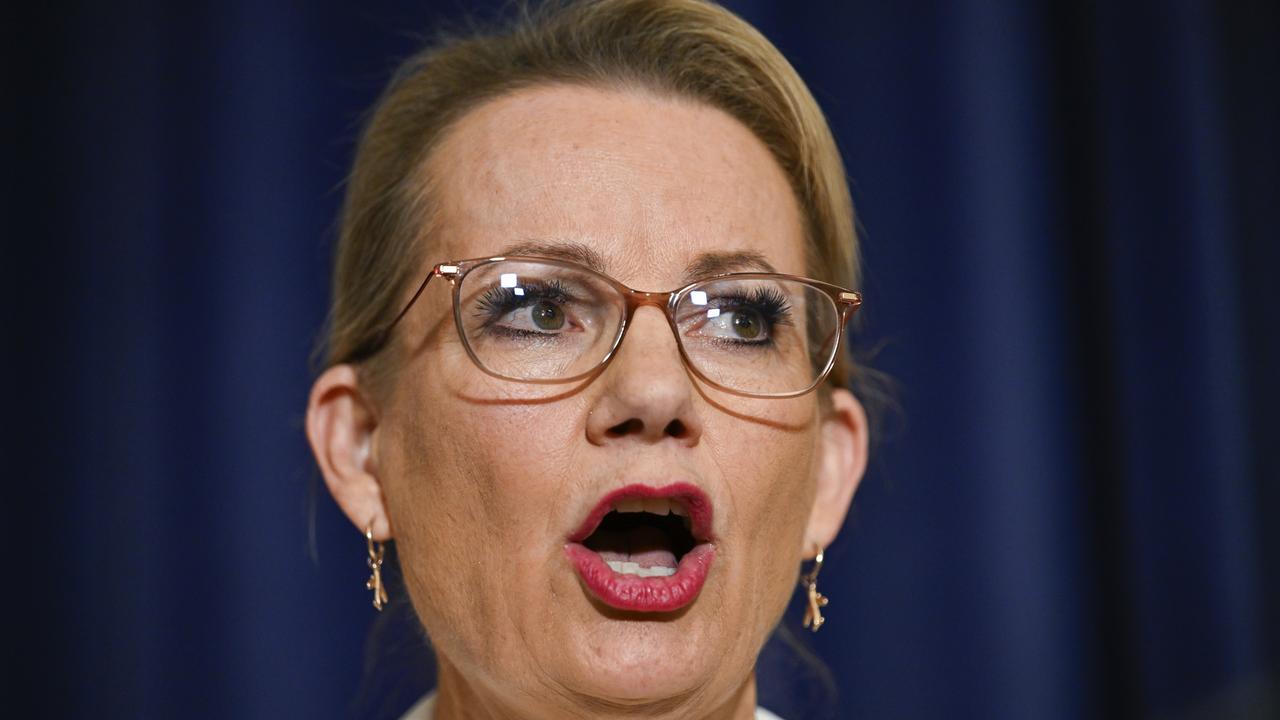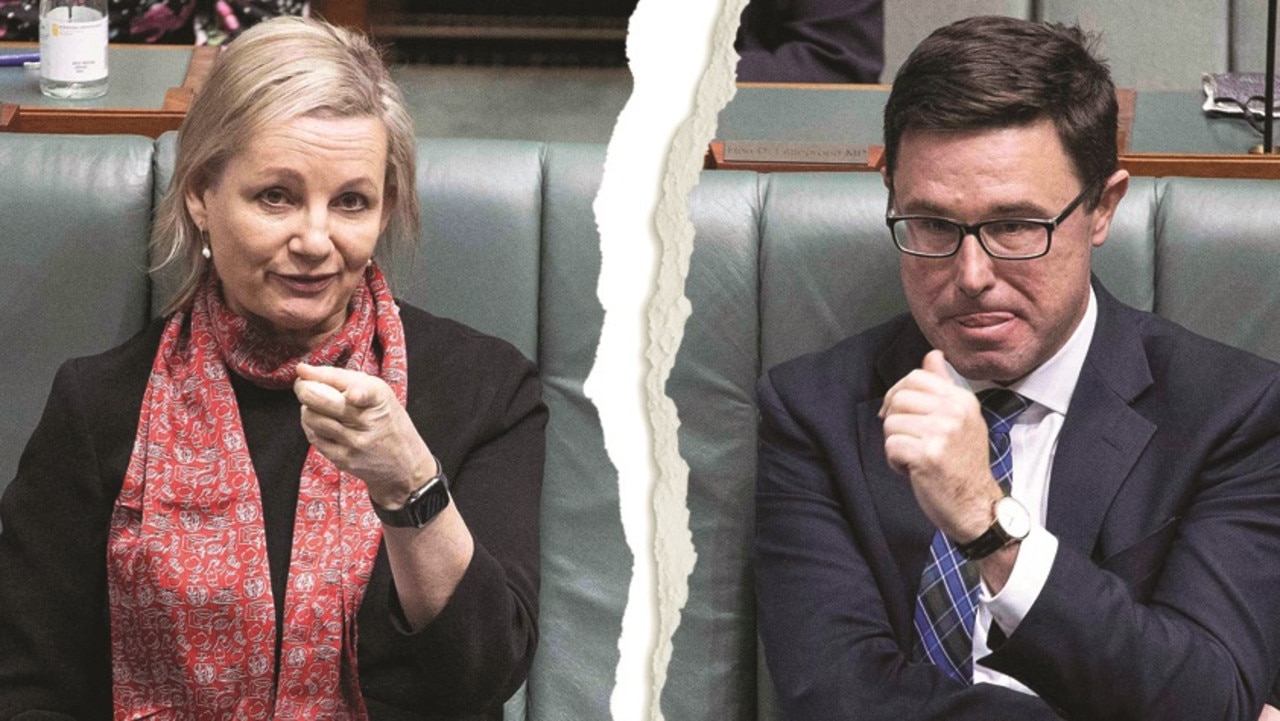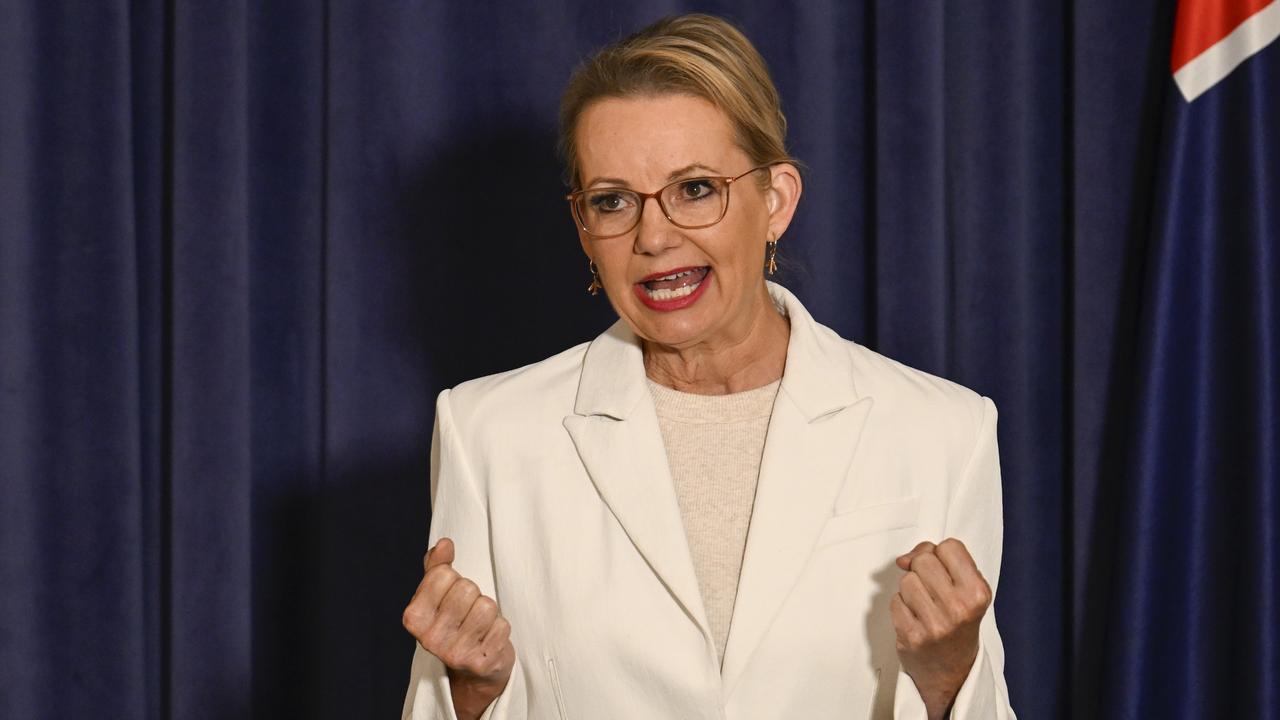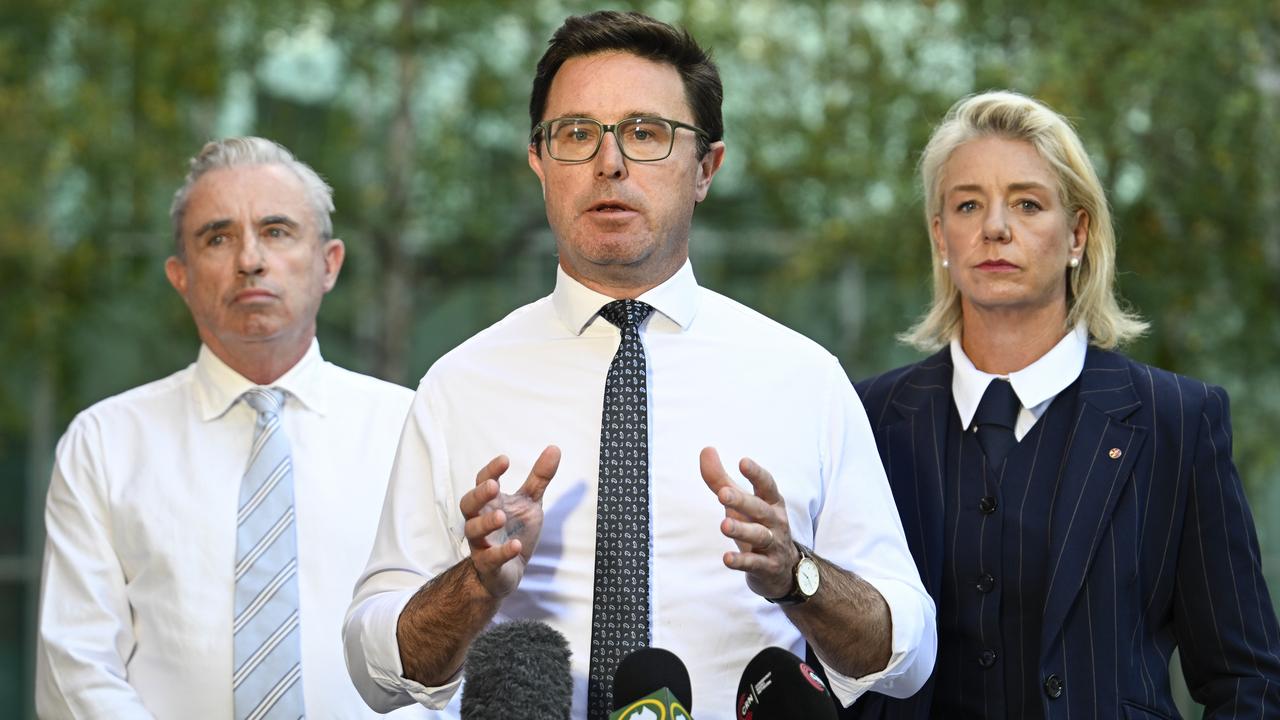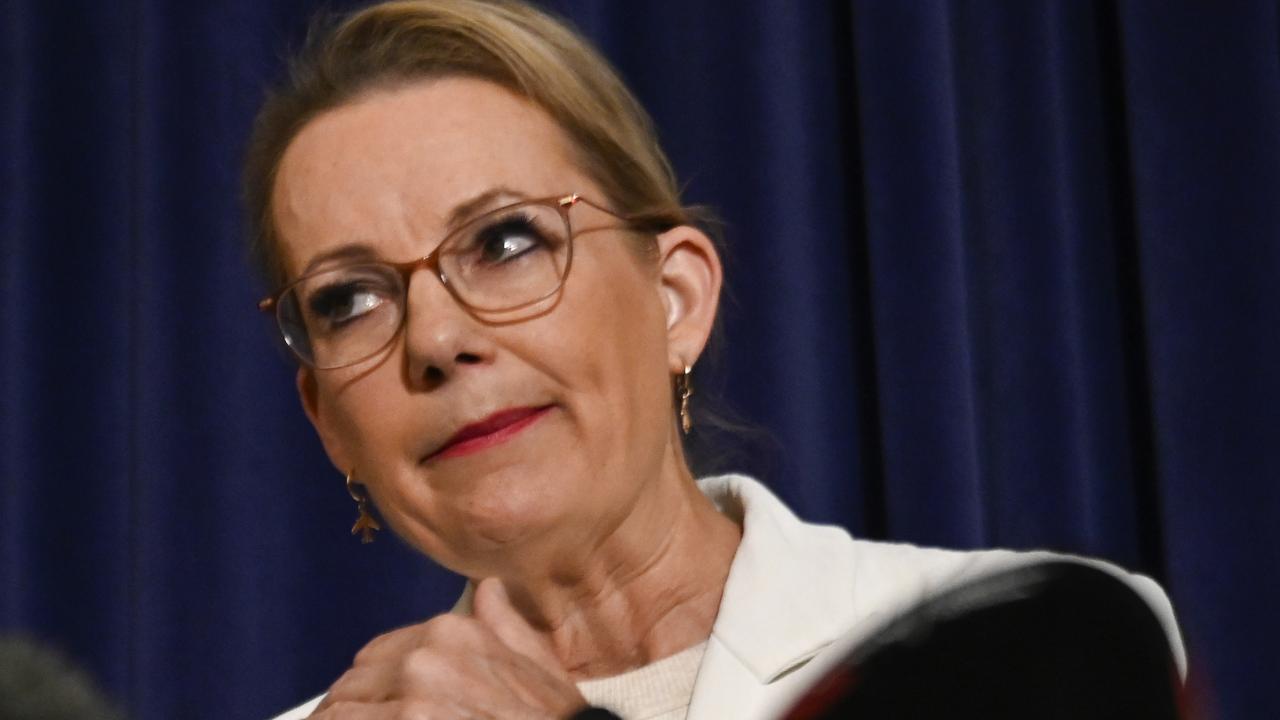James Campbell: Latest Newspoll suggests voting preference shift will secure Albanese a ‘fourth act’
After a long honeymoon period gave way to a series of stumbles, Labor’s fortunes are in the balance as the PM loosens the purse strings, but will it be enough writes James Campbell.
Analysis
Don't miss out on the headlines from Analysis. Followed categories will be added to My News.
The journey of Newspoll over the past three years has been like a play in three acts, which Anthony Albanese will be hoping he can extend into a fourth.
The first act, which must now seem like an age ago to the PM, began with Labor’s narrow election victory in May 2022.
And extremely narrow it was, because although the Coalition under Scott Morrison was flogged — losing 5.7 per cent of its primary and dropping 19 seats – Labor only squeaked home with a two-seat majority by winning nine of them.
And although it won a respectable 52.1 per cent of the two-party preferred vote of a 3.66 per cent swing, it actually got fewer votes than it did in 2019.
But for six glorious months it looked as though Albo would be able to put his mediocre election result behind.
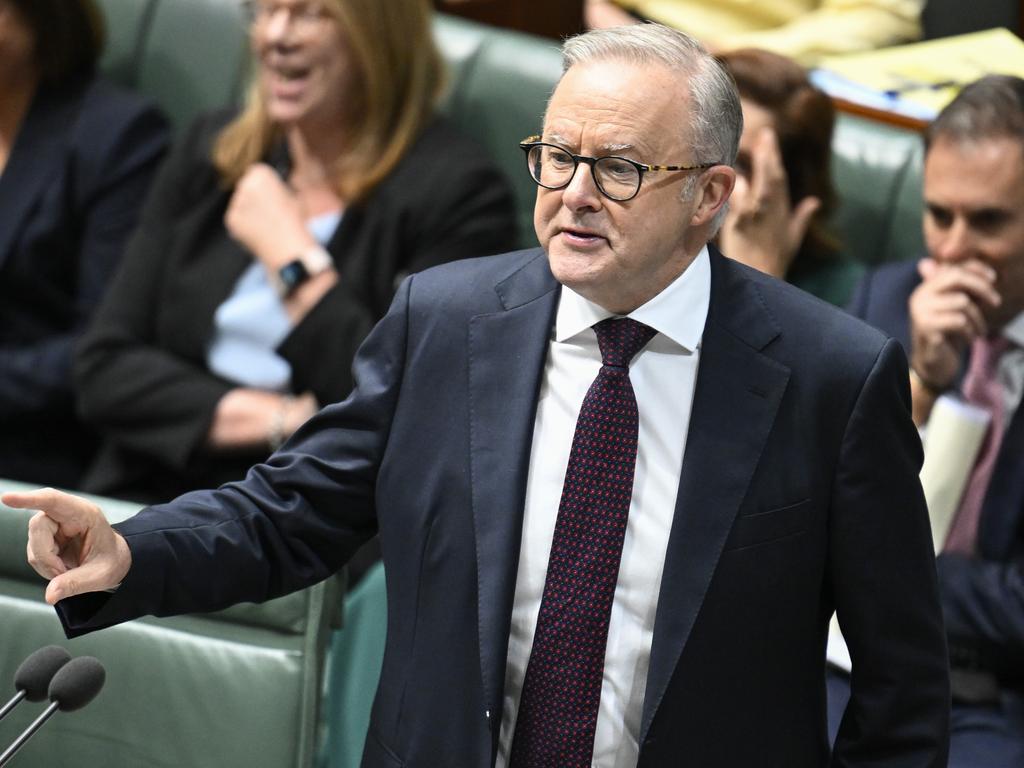
In the first Newspoll of the new parliament in July Labor’s primary surged to 37 per cent giving it a massive two-party-preferred lead of 56 per cent to 44 per cent.
The PM’s approval rating surged even more, up 20 points to 61 per cent — a bigger honeymoon bump than Tony Abbott’s, Kevin Rudd’s or even John Howard’s.
Yaron Finkelstein, a former adviser to Scott Morrison, recalls it as a grim time for Coalition supporters.
“The perception – especially from much of the media – was ‘Australia wants a left wing government’,” he said.
“What made it harder to swallow is this is Albo, the guy we’d been telling ourselves was the left-wing devil incarnate.”
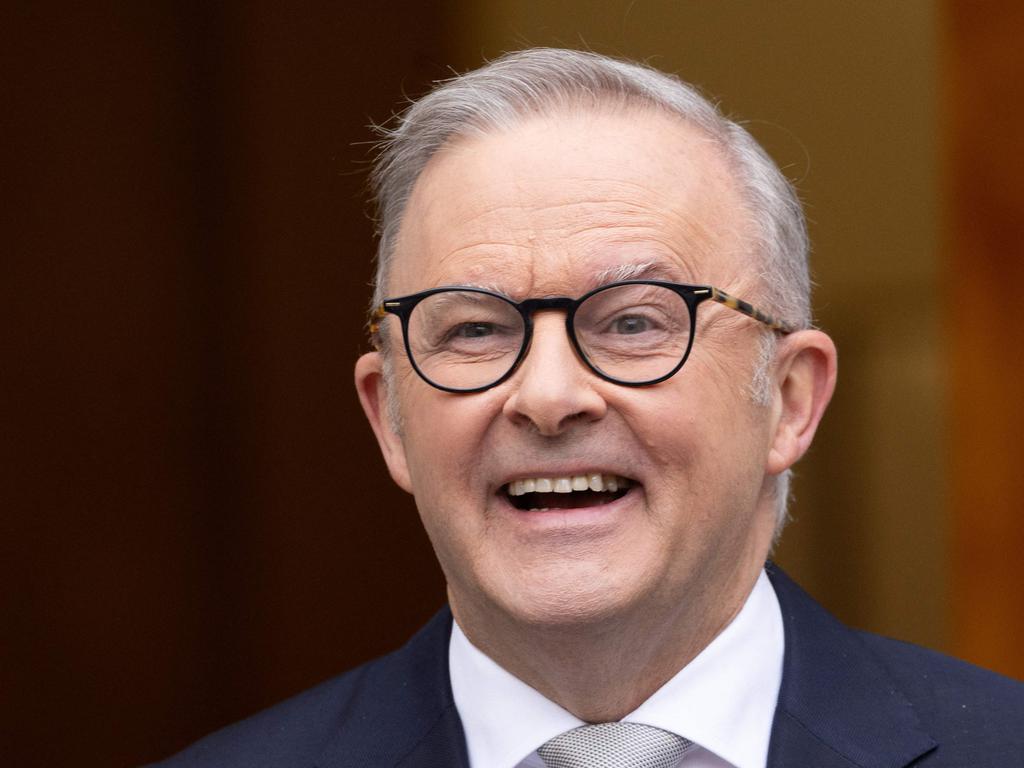
He said with momentum going the government’s way it was easy for some Liberals to question what they should oppose.
“People were asking themselves ‘Is he on the right track with the Voice? Is that where things are?’”
In December after passing energy bill relief and the first tranche of industrial relations changes — in the teeth of the Coalition opposition — Labor’s primary reached 39 per cent.
“People weren’t necessarily across the specifics but they could see things were happening,” a Labor insider recalls of that happy time.
“The performance of the government was better than they expected and he’d done better on the world stage and the whole thing just felt like a breath of fresh air.”
But though nobody knew it, that December’s Newspoll would see the peak of Labor’s primary.
The new year began brightly however and in early April the government still led the Opposition 55 per cent to 45 per cent, which was more than enough to see it capture the seat of Aston in Melbourne’s east.
But in the background the Reserve Bank was slowly increasing the squeeze on Middle Australia with nine interest rises between June 2022 and March 2023.
Even so, voters were not blaming Labor — yet.
“When we were out in Aston people were saying it’s tough but we think Albo gets it,” a Labor campaigner remembers.
Four days after Aston Peter Dutton made the announcement that saw the start of the Albanese Government’s second act — the Coalition would formally oppose the Voice.
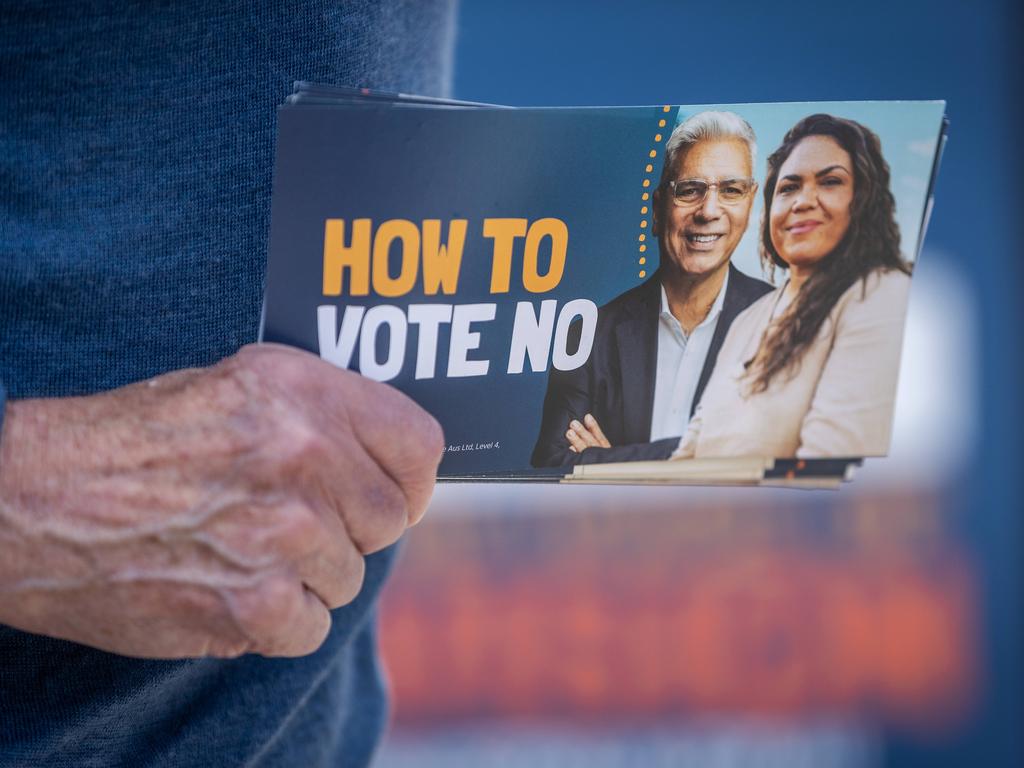
The reasons for Voice’s failure have been well ventilated summed up by Finkelstein’s observation that “Labor was never able to say why this was important. They never explained to what the Voice was a solution. It was similar to Work Choices.”
In the six months between Dutton announcing he would oppose it and the Voice’s defeat the government’s support fell slowly and though it stayed ahead on a two-party preferred basis in early September the Coalition briefly took the lead on primary.
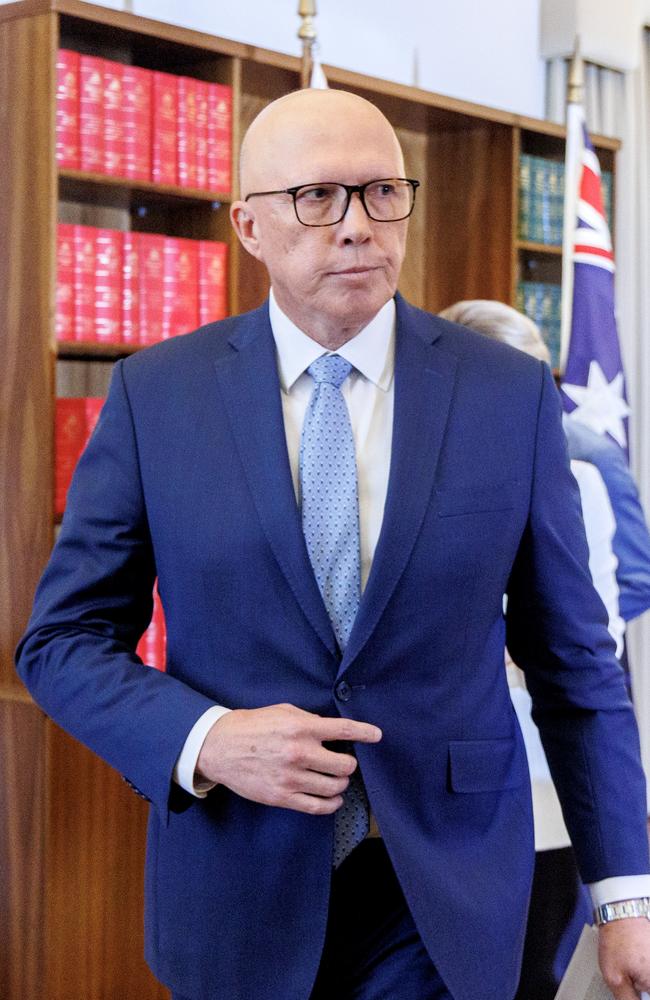
“We were still ahead on referendum day — the real dip came after the referendum,” the Labor insider said.
He said the defeat had crystallised any concerns voters had about the government’s priorities.
“If you had a doubt about Albanese, 60 per cent of the population had just endorsed your doubts.”
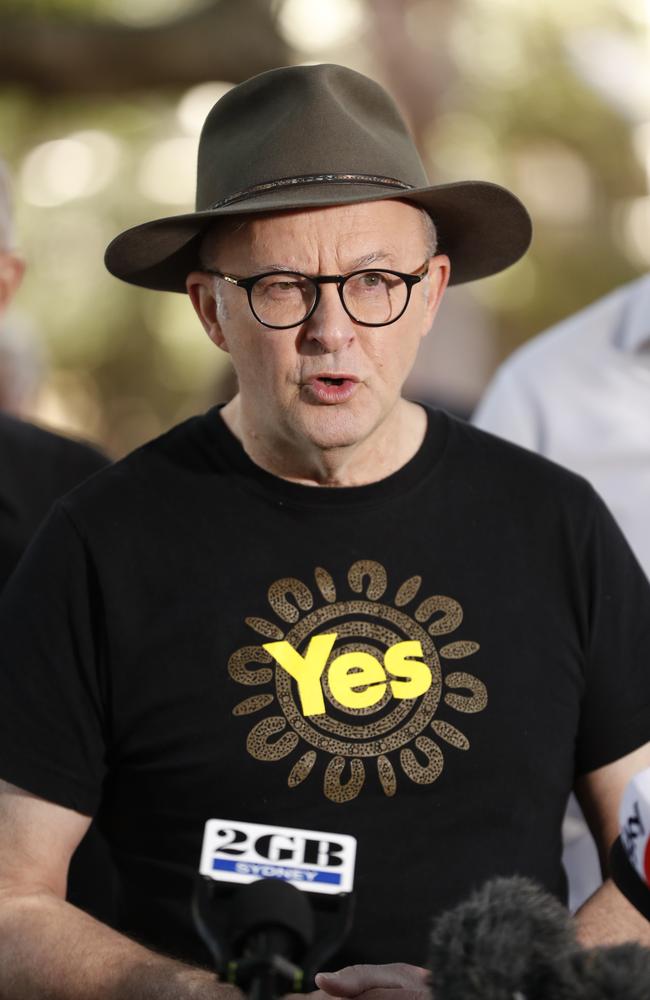
Finkelstein says the impact of the Voice on the government’s popularity was much greater than Labor expected because the public saw it as a reflection of its priorities.
“They severely underestimated how important people would think it was to them,” he said.
By December the Government’s primary had recovered 2 points from its post-Voice dip to be at 33 per cent and was still ahead 52 per cent.
The Prime Minister’s personal approval ratings continued to be dreadful however, having dipped into negative territory in the months after the referendum.
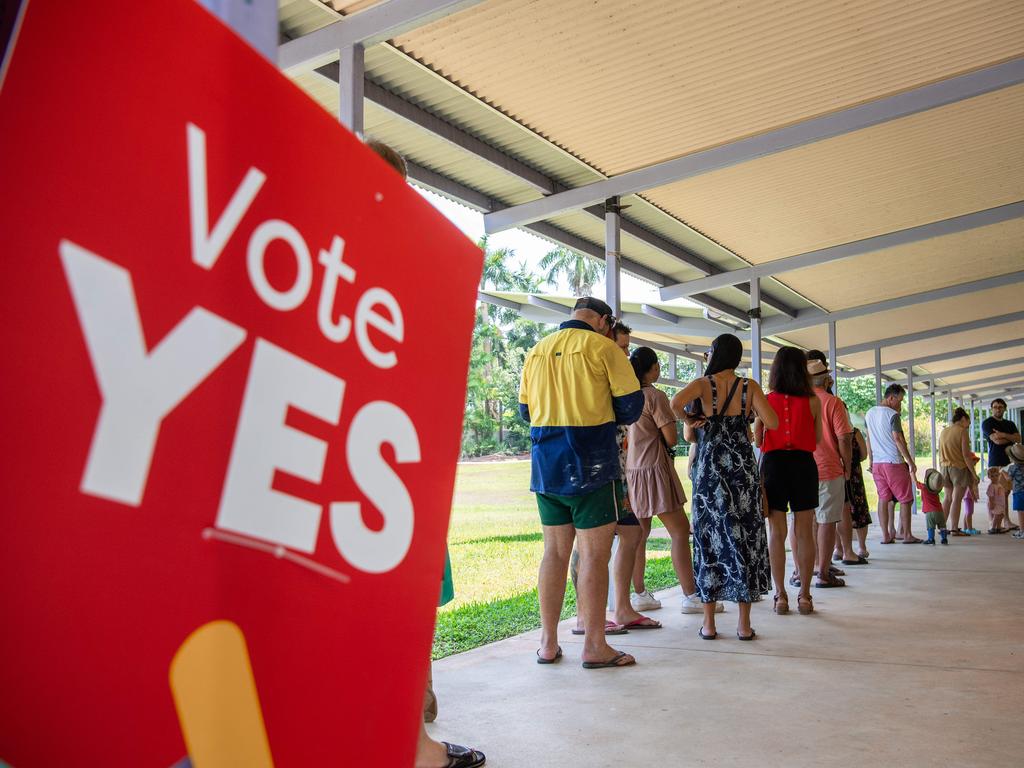
With another by-election looming in the outer Melbourne marginal seat of Dunkley, the government clearly needed to do something to turn things around.
Something turned out to be the broadening of the Stage 3 tax cuts which were due to come into effect at the end of the financial year.
It was meant to be a reset — the start of the government’s third act — but its effect on Newspoll after it was announced in January 2024 was mixed.
While between February and May, the PM’s personal approval rating jumped from -9 per cent to 0, and the government remained ahead on a 2-pp basis, it had little effect on Labor’s primary vote, which never rose above 34 per cent.
The jump in Albo’s popularity proved temporary however and by June he was – 11.
The second half of the year saw a steady erosion in the government’s support while the Coalition’s primary vote grew steadily.
By August the two were tied on a two-party preferred basis and by October the Coalition was ahead.
In the week Donald Trump was re-elected its primary vote hit 40 per cent for the first time since June 2021.
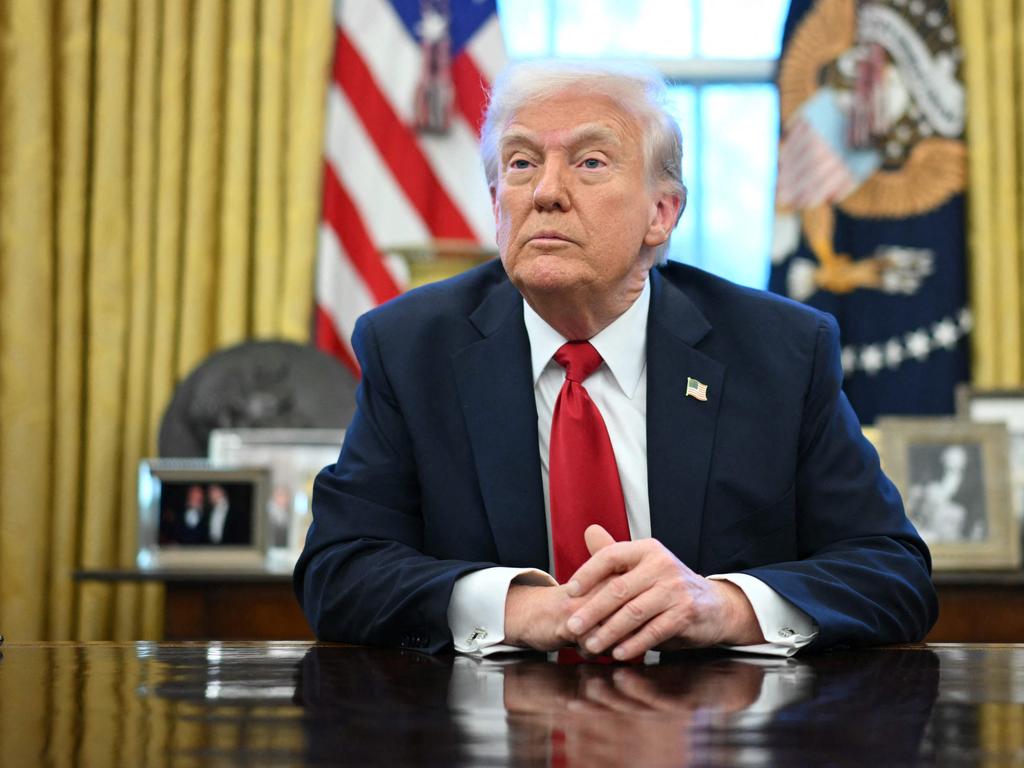
Trump’s victory had an immediate effect on expectations of this year’s electoral outcome or as Labor insider puts it: “Donald Trump won over there so maybe Peter Dutton can win over here.”
But the expectation, shared by a growing number of commentators over the summer, that the government could be heading for defeat has been reversed in the past few weeks as Albo has loosened the purse strings with billions of extra money for Medicare, medicines and this week even a small tax cut.
The spending has again helped his numbers with his net popularity improving from 21 to -12 while stumbles from the opposition leader has seen his fall below the PM to -14.
At 39 per cent however the Coalition’s primary is still almost 3.3 per cent higher than it was at the last election while Labor’s is down 0.58 per cent.
It means Dutton enters the election campaign with a two-party-preferred lead of 51 per cent.
But he still has to win 20 seats to govern in his own right, a task Albo will be betting proves too much for him, meaning the Albanese Government will get a fourth act.
More Coverage
Originally published as James Campbell: Latest Newspoll suggests voting preference shift will secure Albanese a ‘fourth act’




